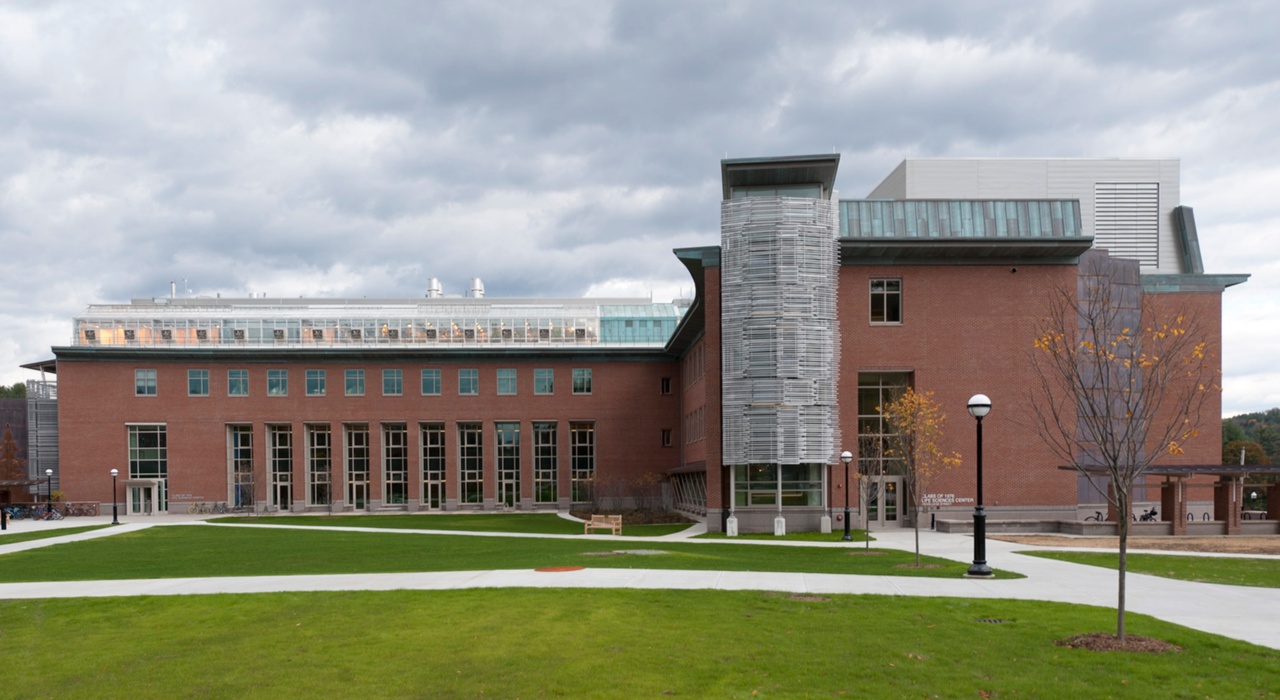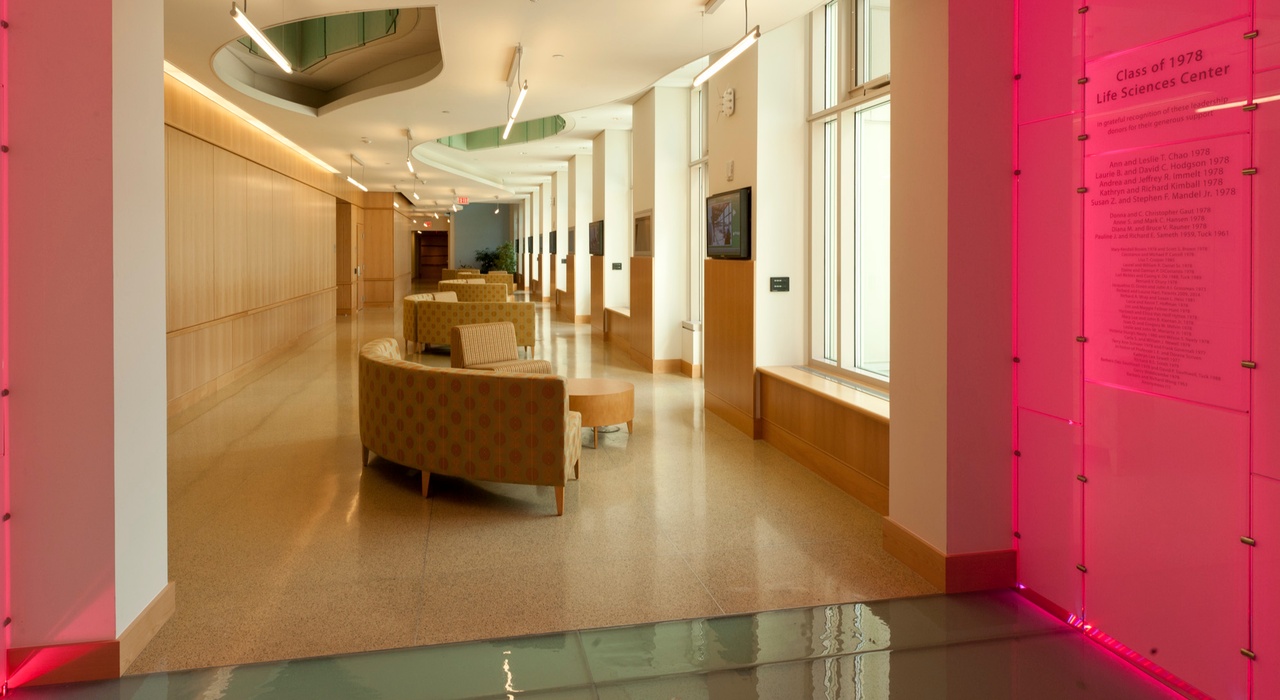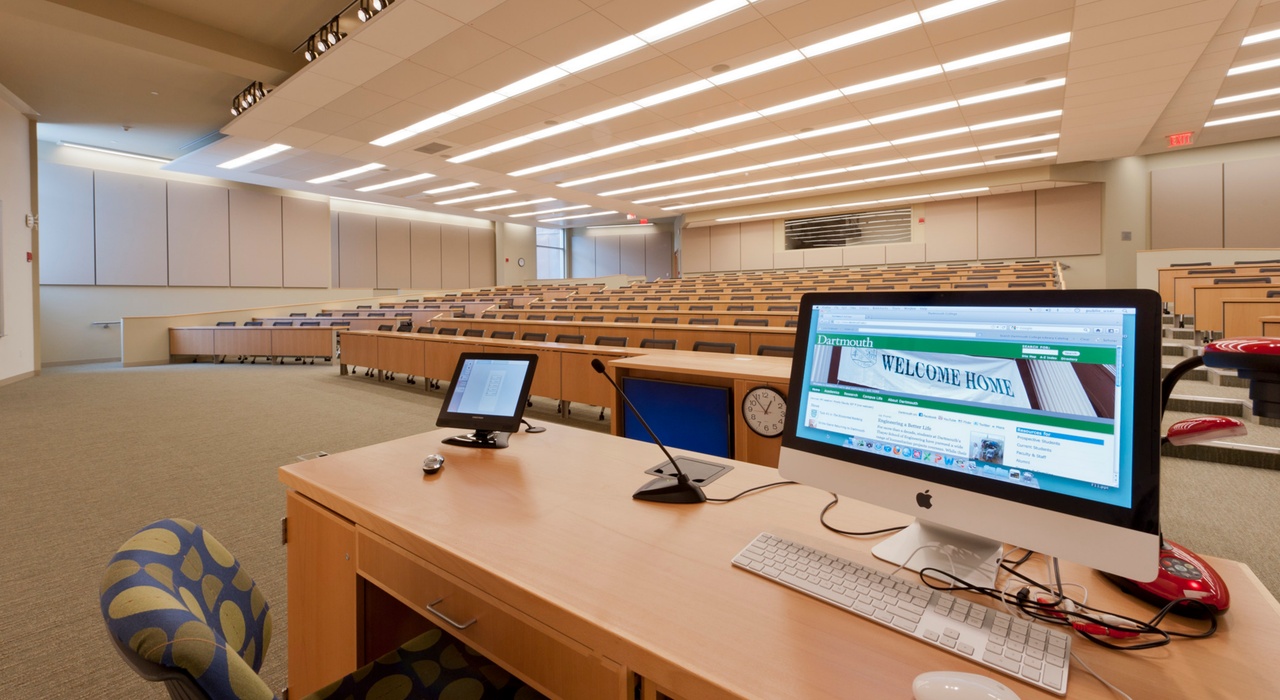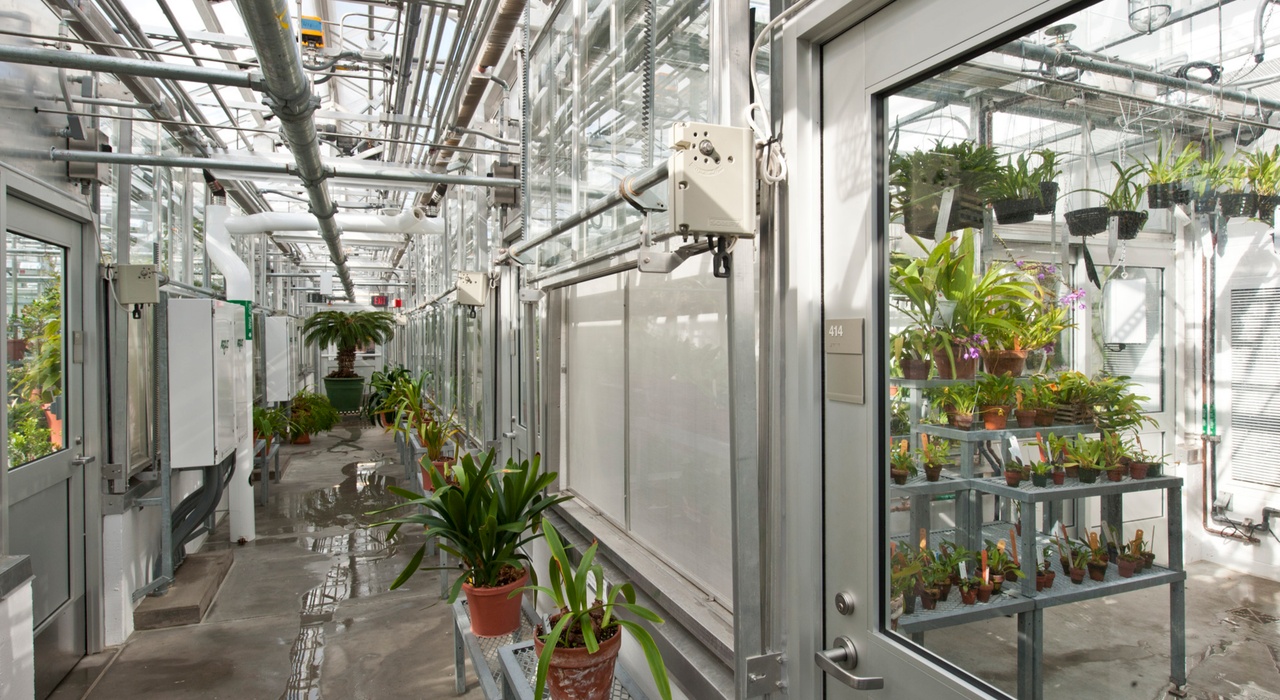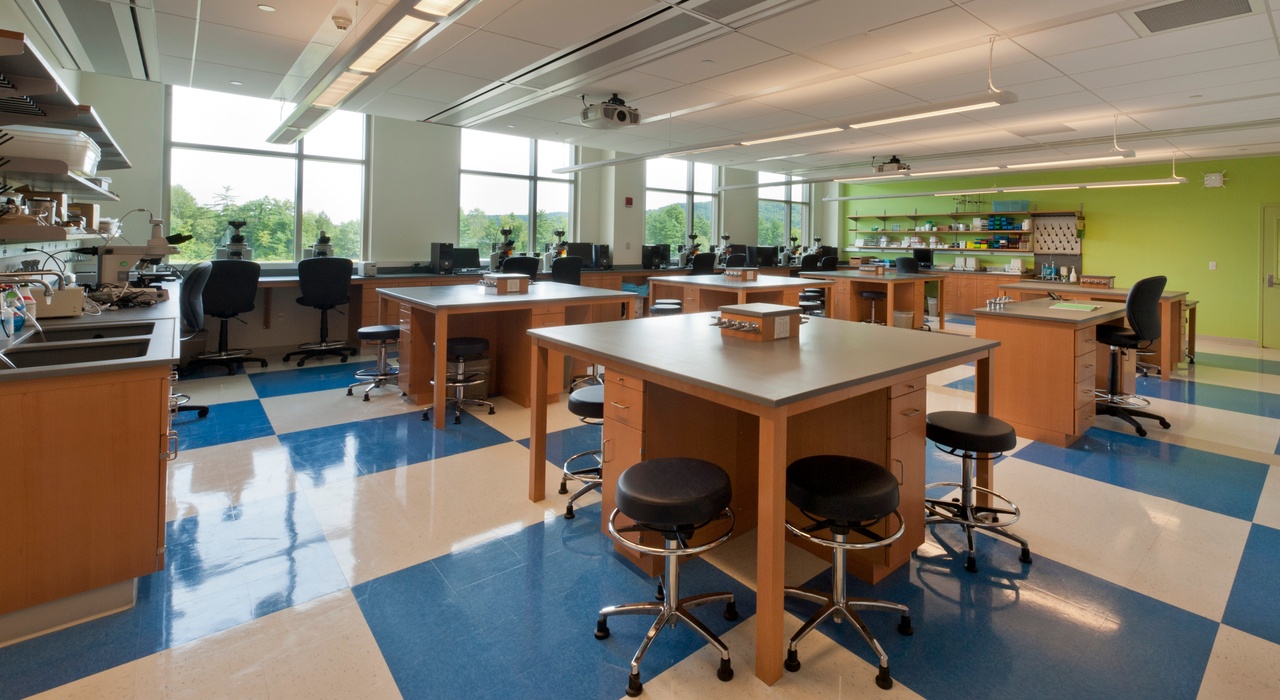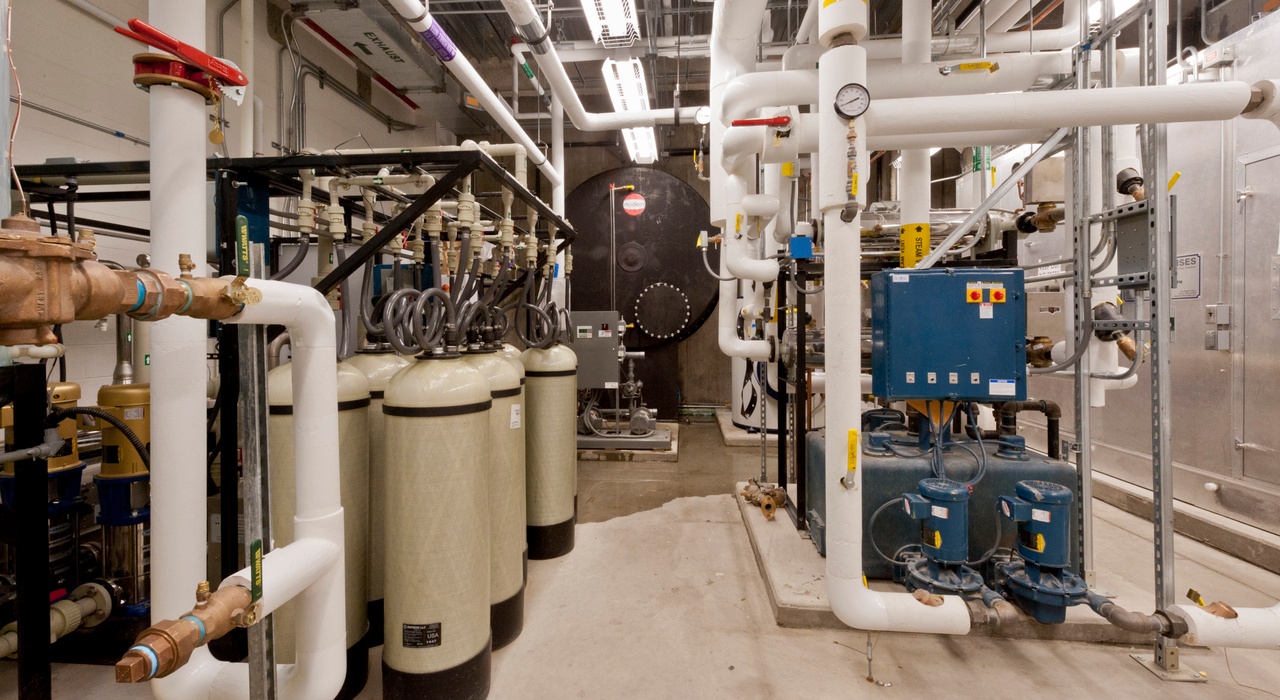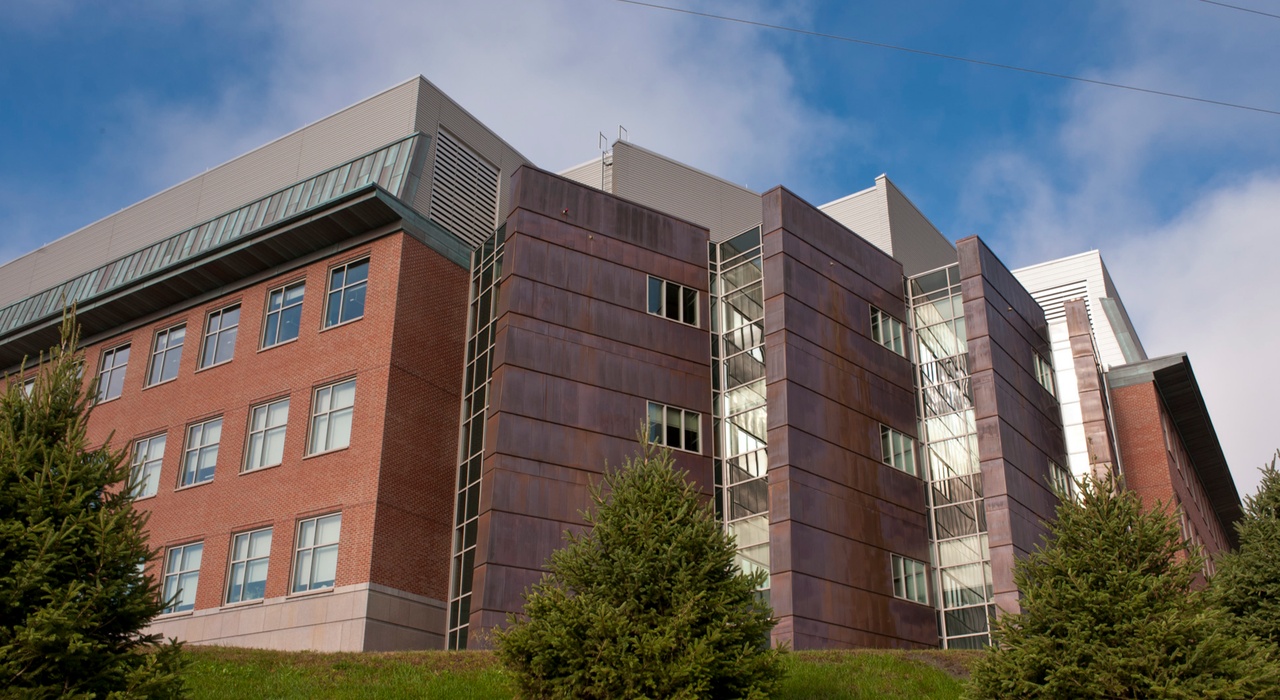SITUATION:
Dartmouth College selected BOND to provide construction management services for its new Class of 1978 Life Sciences Center (LSC). The 174,500 SF renovation and expansion project included: wet labs, faculty offices, a 200-seat theater classroom, an 80-seat amphitheater classroom and flexible teaching classrooms. An important goal of the project was to deliver a highly sustainable and energy efficient building that aligns with the green building goals of the campus. The LSC is one of five LEED (Leadership in Energy and Environmental Design) certified buildings on the campus.
CHALLENGES:
- Site surrounded by roadways on three sides and abutting the Geisel School of Medicine creating tight building constraints
- Coordination and timing of building materials during severe winter conditions
- Minimize disruption to operational college campus
- Environmental concerns in delivering a LEED certified science building with high capacity energy-consuming laboratory space
SOLUTIONS:
- Performance mockup was developed for material installation to ensure building was weather tight and that sustainability model was maintained
- Installation of an air sampling system to monitor and adjust air flow to result in energy cost savings; high performance building envelope with high insulation values and continuous air and vapor barrier; solar gain control systems; several green roofs to include a rooftop rainwater system that recycles water through the plumbing system
- Coordinated material deliveries around peak traffic times to avoid disruption to campus activities
RESULTS:
- Project completed well in advance of the new academic year
- LEED Platinum certified building is a model of sustainability for other US laboratories
- The LSC has an annual cost savings of 30 to 35 percent compared to buildings of standard construction
- World class facility utilizes an open design to facilitate a more collaborative approach between scientists and students seeking solutions for urgent issues such as genetic disorders, mental illness, and environmental degradation
